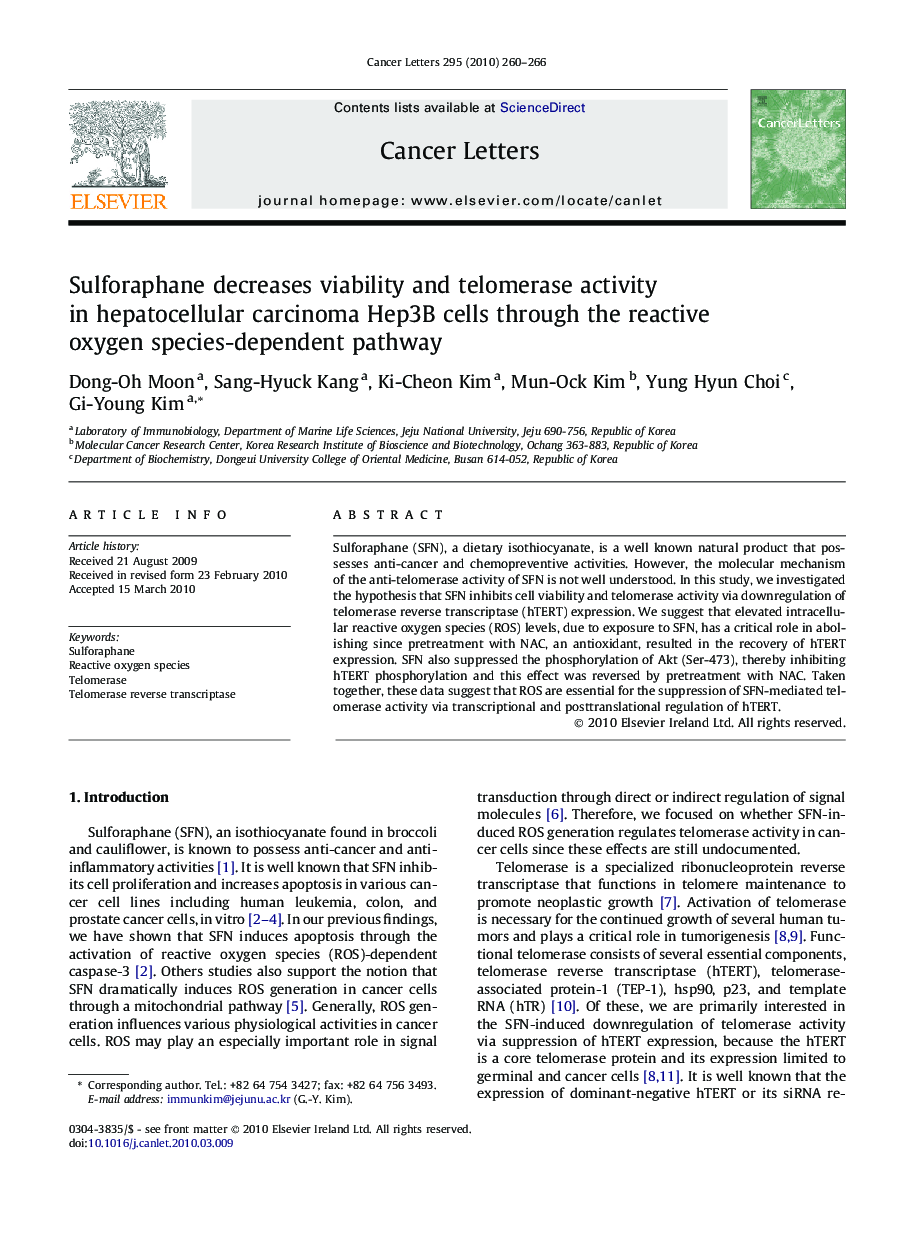| کد مقاله | کد نشریه | سال انتشار | مقاله انگلیسی | نسخه تمام متن |
|---|---|---|---|---|
| 2113937 | 1084507 | 2010 | 7 صفحه PDF | دانلود رایگان |

Sulforaphane (SFN), a dietary isothiocyanate, is a well known natural product that possesses anti-cancer and chemopreventive activities. However, the molecular mechanism of the anti-telomerase activity of SFN is not well understood. In this study, we investigated the hypothesis that SFN inhibits cell viability and telomerase activity via downregulation of telomerase reverse transcriptase (hTERT) expression. We suggest that elevated intracellular reactive oxygen species (ROS) levels, due to exposure to SFN, has a critical role in abolishing since pretreatment with NAC, an antioxidant, resulted in the recovery of hTERT expression. SFN also suppressed the phosphorylation of Akt (Ser-473), thereby inhibiting hTERT phosphorylation and this effect was reversed by pretreatment with NAC. Taken together, these data suggest that ROS are essential for the suppression of SFN-mediated telomerase activity via transcriptional and posttranslational regulation of hTERT.
Journal: Cancer Letters - Volume 295, Issue 2, 28 September 2010, Pages 260–266